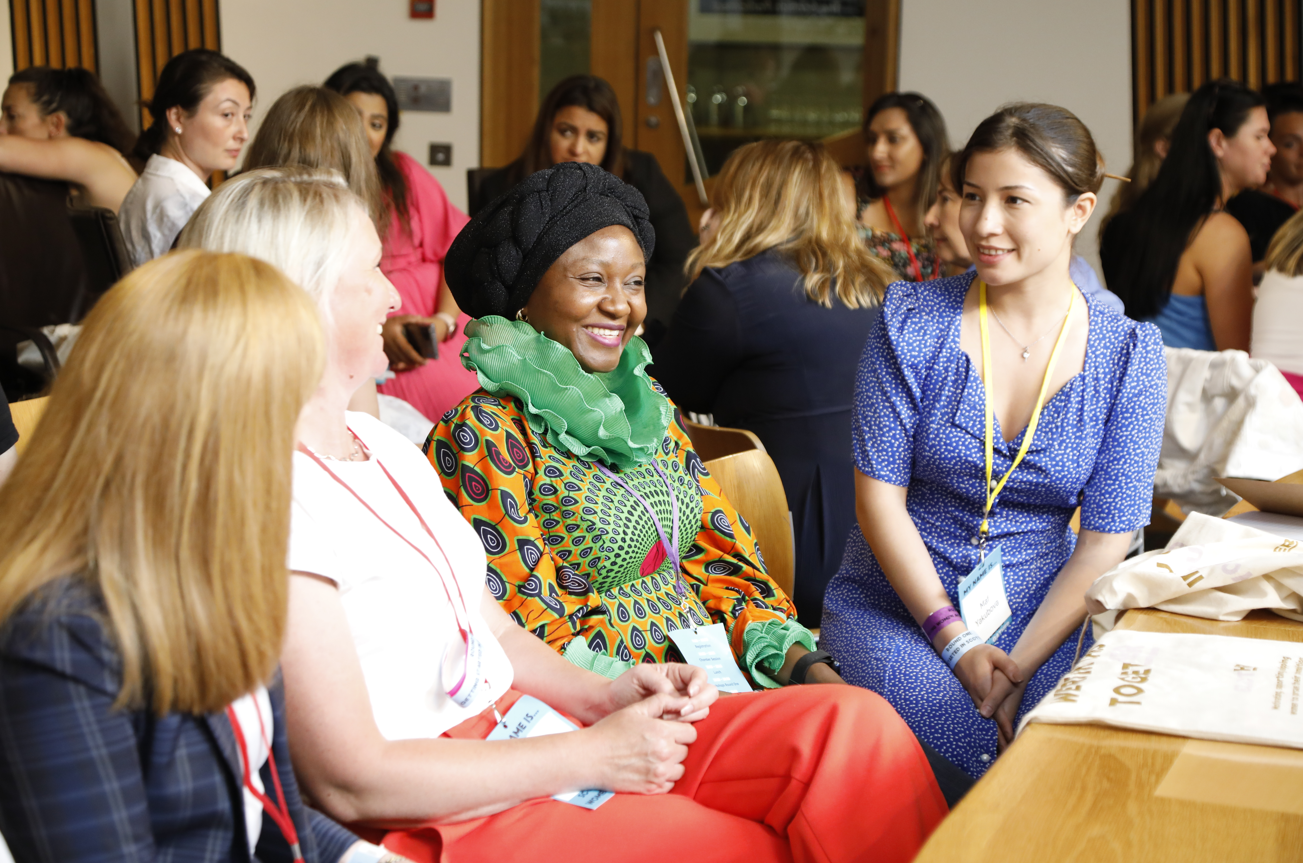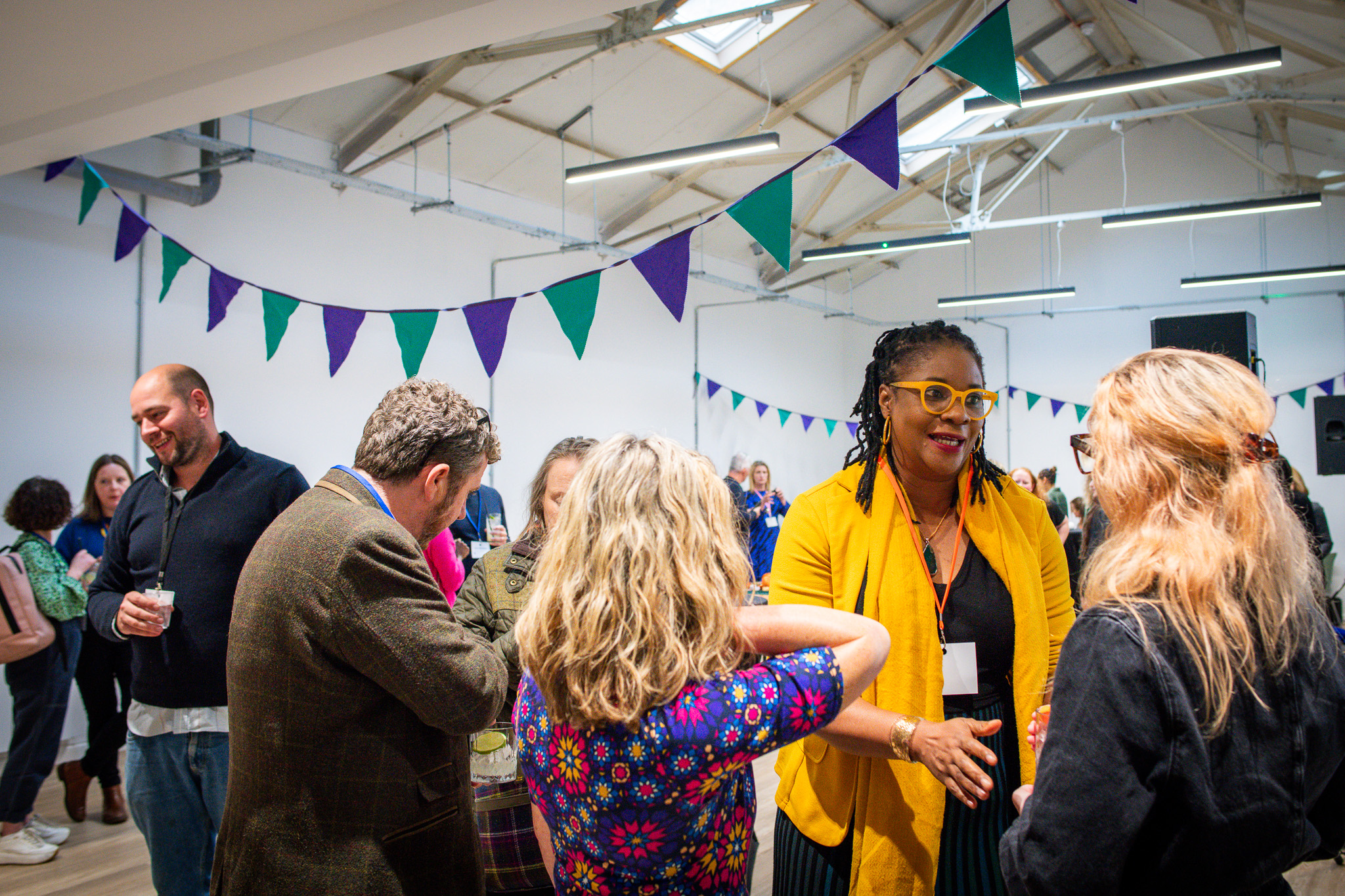Embedding Diversity Into Governance: How Firstport is strengthening inclusion at board level
As part of National Inclusion Week, Firstport shares the steps it has taken to embed diversity and inclusion into its governance.
At Firstport, we often talk about the power of social enterprise to change lives. Every day, we see social entrepreneurs step up with creative solutions to complex challenges. They draw on their own communities and lived experiences to make a difference. As Scotland’s agency for start-up social entrepreneurs, it’s clear to us that if we are to serve this sector well, our own organisation must reflect the diversity and richness of the people we work with.
Over the past year, we have taken significant steps to embed diversity and inclusion into our governance, ensuring that our board represents a broad range of perspectives. National Inclusion Week offers us a great opportunity to share what we have been doing, why it matters, and how it is shaping the way we recruit and govern.

Starting with a Framework
Our journey began with a refresh of our Diversity and Inclusion framework in 2024. Equality, diversity, and inclusion (EDI) have been an organisational priority since 2020. While we made significant progress in areas like recruitment, communication, and training, the new framework builds upon that early work, pulling it together into a holistic, structured, and thoughtful approach.
As part of the new framework, we established a working group, comprised of two co-chairs, a dedicated team of staff from across departments, and the support of the CEO as Executive Sponsor. The group has developed an annual plan of action to drive forward the priorities identified within the framework.
But the framework is more than a document – it’s a recommitment. We are crystal clear that inclusion sits at the heart of Firstport. That means fostering an environment where people feel valued, respected, and able to bring their whole selves, whether as colleagues, partners, or board members.
It was also a moment to look at our structures. If diversity is to be a lasting feature of Firstport, it must be embedded into every aspect of the organisation, including how we govern ourselves.
Locking Diversity into our Governance
Also in 2024, we took a bold step: we amended our Articles of Association, incorporating diversity requirements into our board and governance.
As an accredited Investor in Diversity, we wanted to hold ourselves to account. Our articles now require that:
- No more than 50% of our directors in post at any one time identify as male, female, or non-binary.
- At least 25% of Directors have lived experience of running a social enterprise.
- At least 25% of Directors bring a diverse perspective, defined as individuals from: a global majority background, members of the LGBTQ+ community, individuals living with a disability, or young people aged 18–26.
These changes mean that every time we recruit members onto the Board, we are guided by more than a desire for balance; we are bound by governance. These requirements create both a responsibility and an opportunity to think differently about how we find the people we need.
Rethinking Recruitment
Fast forward to 2025. With our new Articles in place and a couple of board members reaching the end of their terms, we faced our first recruitment round under the refreshed requirements. On paper, the challenge was clear: we needed to appoint two individuals who are, or identify as female, and who also brought a diverse perspective. In practice, this meant rethinking the way we usually approach board recruitment.
We knew that simply advertising a role and waiting for applications would not deliver the diversity we needed. So, we took a different approach.
First, we asked for help. We worked with Board Racial Diversity UK to review our recruitment advert and documentation. Their feedback helped us see where language could unintentionally exclude or where barriers might exist. The process was invaluable, making our advert and documentation sharper, more inclusive, and more welcoming.
Next, we thought carefully about where we promoted the roles. Casting the net wide and hoping for the best was a non-starter, so we focused on networks where the people we wanted to reach were already active. We worked with platforms and networks like Equal Jobs, Changing the Chemistry, and Dechomai, all of which share our belief that diverse leadership strengthens organisations.
Finally, we decided to be explicit in our recruitment advert. We shared our diversity requirements within the advert and stated clearly who we were looking for. We knew this level of clarity might raise eyebrows, or even spark a pushback, but we felt it was important to be honest about our intentions. To our surprise (and relief), the criticism never came. Instead, our openness was welcomed.
The Outcome
So, what was the result? A successful process that has brought two new members to our board. We will be announcing their appointments soon, but what we can say now is that the open and honest approach worked. We reached people we may not have reached otherwise, and we recruited individuals with perspectives and experiences that will make our board stronger.
Just as importantly, the process taught us that when you are intentional, willing to ask for expert advice, and clear about what you are looking for, you can recruit inclusively without compromise.

Looking Forward
Embedding diversity into our Articles of Association was a milestone, but it is not the end of the journey. Inclusion is not static; it requires us to keep listening, learning, and adapting.
This year’s recruitment process was the first test of our new governance requirements. It has given us confidence that our approach is the right one, and it has reminded us that change doesn’t happen by accident. It happens when you decide to do things differently.
Our new Board appointments are a step in that direction. But the real achievement is the system we have put in place: one that locks diversity into our governance, strengthens our leadership, and ensures that the voices shaping what we do come from many different places.
